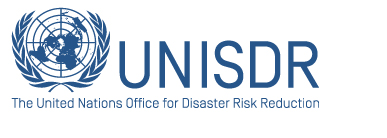The challenges of this growth for cities were discussed by government, academic, private sector and civil society experts, who convened in Panama City at an event organized bythe United Nations System in Latin America and the Caribbean, in cooperation with the Ibero-American General Secretariat (SEGIB) and the Government of Panama, held in a parallel to the XXIII Ibero-American Summit of Heads of State and Government. The keynote speaker for the SUSTAINABLE CITIES FOR THE WELFARE OF ALL meeting was former Bogota Mayor AntanasMockus and included the participation of international experts on topics such as growth, finance, security and resilience of cities.
In the main conference, the former mayor of Bogota noted that"sustainability is to be able offer new generations the same or better conditionsthan those we currently enjoy."Antanas Mockus highlighted the pursuit of equality, equity and the exercise of rights as priorities for the achievement of public safety based on the right to live without fear.
Meanwhile, the Secretary General of the SEGIB, Enrique Iglesias, stressed that the issue of cities is critical, especially in our region, adding that the future world will be cities.
The forum also included representatives of various sectors of the Latin American region, commenting on three main thematic areas: growth and sustainability, financing, and safety and resilience. The participants included Angela Maria MésquitaFontes (Deputy Secretary of Institutional Coordination and Thematic Actions, Rio de Janeiro, Brazil); Manuel Olivera (Clinton Foundation), Juan Antonio Sosa (Vice President of Infrastructure, CAF); Jessica Diaz- Avelar (Prudential Real Estate Investors Latam), Gustavo Riofrío (advisor to the mayor of Lima, Peru), Carlos Molina (Sustainable Urban Development expert); Gaudy Morera (Deputy Minister of Decentralization and Local Development, Costa Rica) , and Patricia Reinosa (Director of Planning and Resource Management of Central American Integration System, SICA).
Marcela Suazo, Regional Director of the United Nations Population Fund (UNFPA) for Latin America and the Caribbean, provided the conclusions and recommendations, while HeraldoMuñoz - Chairman of the United Nations Development Group for Latin America and the Caribbean (LAC UNDG) and Director for Latin America and the Caribbean of the United Nations Development Programme (UNDP) – gave the closing remarks.
"This reality actually makes the challenges of sustainable development, inclusive public policies and resilience even greater, particularly in light of inequalities that persist and aggravate poverty reduction," the United Nations System in the region stated.
Various studies sponsored by UN agencies and programmes show that there is a strong relationship between the quality of life in cities and theirapproachto development –accounting for population dynamics, territorial distribution plan and the natural resource management. Cities that are more efficient in the use of resources combine greater productivity and innovation, with lower costs and environmental impacts, while generating conditions that allow people to access greater opportunities and better quality of life.
Growth in cities, particularly medium-sized cities (one to five million people), has led to segregation and socio-spatial polarization i.e.the coexistence of high quality and cost public infrastructure with densely populated slums that lack basic services in the same territorial space. This reflects not only the continued growth of the city but also the lack of proper land use planning, the persistence of poverty and deep inequality gaps.
"Urban sustainability is threatened by a series of changes that are closely related to the varied demands and needs of the population, increased vulnerability to climate change, demographic change and new governance models. Working with an inter-and intra- generational approach, gender, sustainability and equity offers new opportunities for the democratization of municipal governance, gender mainstreaming, the decrease in violence (in general and perpetrated against women and girls in particular), and poverty reduction through quality services and effective processes and opportunities for all," the UN agencies and programmes stated. "Given the expected growth of the urban population and the impacts of environmental degradation and climate change, it is essential to ensure that metropolitan regions and cities implement policies for planning, design and sustainable urban management," they added.
The ideas and shared experiences from this forum will contribute effectively to the regional, national and local agenda in the coming years, establishing the sustainability of cities as a priority for policy makers in the region.
For more information:
http://onusida-latina.org/es/ciudades-sostenibles.html
Hashtag: # CiudadSostenible




